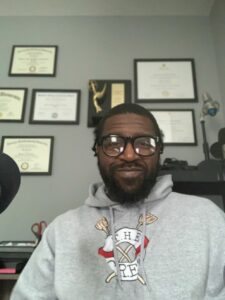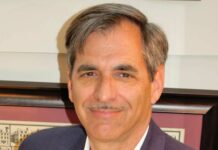Many liberal Jews can openly quote Rabbi Abraham Joshua Heschel and speak of him as the guide for their social justice philosophies. But do they apply those words?
Heschel’s approach to Torah gave life to the idea that all of the words in religious truth can be found everywhere that truth exists, and those spaces were divinely prepared so no faith had control over them. This ideology allowed him to see people for their divine purpose.
At the time of his arrival in America, Black America was 99% American Descendants of Slavery. He studied the history of his adopted country, learning about Black grief and that many were not afforded basic rights and protections under the law. He realized that as a Jewish man in America, he was free to live his life because of his proximity to white America. While he may have faced some discrimination, he understood that the American Descendants of Slavery had no rights. He listened to the Black Americans with whom he surrounded himself and made known to them his job as a Jew was tikun olam (repairing the world).
As a Black American Jewish man who is an American Descendant of Slavery who believes that tikun olam is my job, I’d imagine that Heschel would welcome me in with open arms. I don’t think, however, that he would be proud of my treatment in the community.
In many of the Jewish spaces in which I belong, there is a focus on inclusion and diversity for people of color, with my ethnicity as an American Descendant of Slavery being at the end of the list of consideration. We discuss immigrant and refugee rights, but we never talk about how this will impact Black American communities — one could argue that it is because the tradition is to gentrify those same communities so who cares. We talk about training and developing emerging leaders in the community — so long as those leaders are not Black Males. We teach tolerance and increasing sensitivity to other marginalized groups while microaggressions toward me and my family, of being mistaken for the intern, caretaker or security, go ignored.
I have been in leadership positions in the private and public sectors. I have had leadership training in both sectors. I have successfully helped a group of about 64 people between the ages of 18-27 go to a war zone to provide communications and returned them to their loved ones safely, with a 99.7% reliability rate at their backs. I was even sponsored to do a Jewish leadership course, where I inevitably taught a class in diversity, equity, inclusion and accessibility to this group of future and current Jewish community leaders.
However, I make a great decoration for groups and organizations. I tend to be pictured at all Jewish events, added to websites, given faux titles of inclusion that are taken away when I inquire about the actual inclusivity and repair work being done. The same places that use me as their performative poster child of their inclusive environment are also the ones who do not speak up when I am called “aggressive” in an email that starts with “Hey Team.” Similarly, I’m a hit at events where we need to talk about Black suffering long enough for someone who feels like a savior to “piggyback off me” and share their story.
Baltimore resident KeSean Johnson ethnically identifies as an American Descendant of Slavery. He is the founder of the Hip Hop Party for Change and an Emmy-Award winning film producer.







